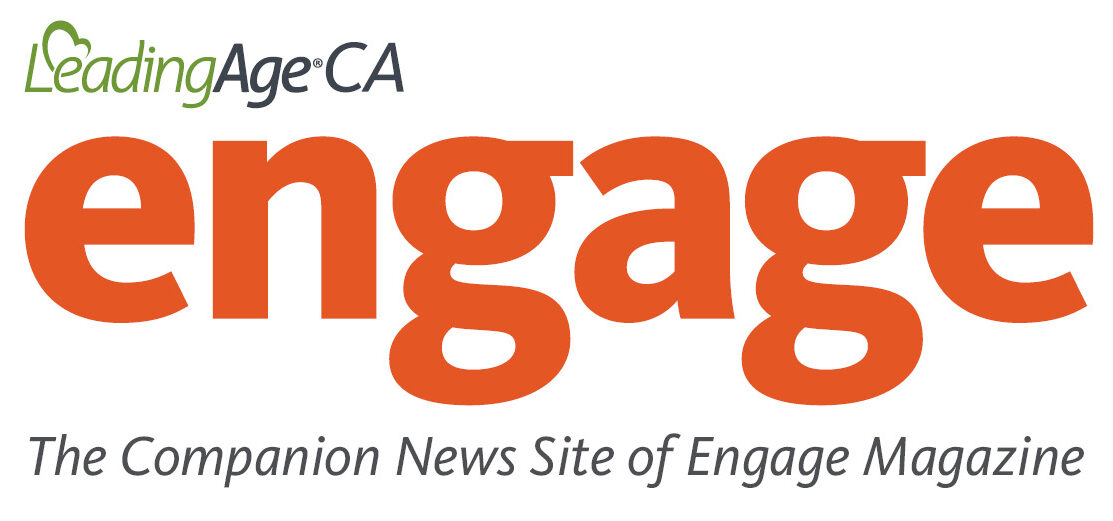By Amber Christ, Managing Director of Health Policy and Denny Chan, Managing Director of Equity Advocacy, Justice in Aging
All of us are aging. However, how well we age and how long we live are too often determined by factors outside our control. Racism, ageism, ableism, sexism, and other forms of discrimination are structurally embedded in our systems of care and across housing, education, employment, and our criminal justice system. The effects of discrimination compound over the lifetime and lead to stark inequities in health outcomes, life expectancy, and where we get to age. The pandemic has exacerbated those inequities. In California, 71 percent of deaths from COVID-19 are among individuals 65 and over, including over 10,000 residents of long-term care facilities. Latino/a, Black, and Native elders have died at significantly higher rates than white older Californians. People of color have also died at younger ages, dramatically decreasing overall life expectancy.
Data is Essential to Advancing Equity in Health Care
California has committed to addressing disparities in its healthcare system. Essential to accomplishing that goal is comprehensive and intersectional data collection coupled with reporting across the entire healthcare infrastructure, including at-home care and care provided in nursing facilities and other congregate care settings. Over two years into the pandemic, however, California still does not have race data for 1 out of every 4 reported COVID-19 infections. Data is needed to identify disparities in access to and use of services and to help develop strategies and policies to address those disparities when it comes to COVID-19 and across the entire care infrastructure.
Take Vivian as an example, a 77 year-old Vietnamese women with limited English proficiency, who had a stroke a couple years ago and now resides in a nursing facility in Alameda, Calif. Vivian wants to move back home with her daughter, especially in light of the high risk of COVID-19 infection she faces in a congregate setting, but she needs assistance with dressing, bathing, cooking her meals, and getting to her doctor’s appointments.
If Vivian could access programs that provide in-home help, she could return to the community. These long-term services and supports (LTSS) range from assistance with cooking and bathing, case management, home modifications, to name just a few, and are made available through the state’s Medicaid program known as Medi-Cal. Unfortunately, there are barriers that people encounter in accessing these services, unnecessarily depriving many people like Vivian of the option to return to their homes and communities.
The data collected during the pandemic from nursing facilities has helped to identify factors that have led to high rates of COVID-19 infection and deaths in these settings including, for example, facility ownership, size, staffing, and resident demographics. Based on this data, researchers were able to put forth a set of recommendations to improve the quality of care in nursing facilities. Similarly, collecting, reporting, and analyzing data on access to and utilization of LTSS would allow California to uncover the issues that keep eligible older adults and people with disabilities like Vivian from accessing care and supports at home and to develop strategies to address those barriers. One difficulty that Vivian, and others who don’t speak or understand English, encounter is a language barrier. There are other barriers based on where a person lives, their disability, and likely many more, but without the data, it’s impossible to know where the problems lie and then develop and implement targeted policies and strategies to address those problems.
Aging and Disability Advocates and Providers Have an Essential Role in Data Collection and Reporting
California has a number of data initiatives underway to identify and address inequities in the healthcare system. When it comes to LTSS, the state is conducting an LTSS gap analysis and multi-year roadmap and is in the process of rolling out the first version of an LTSS dashboard later this year. The state has also created a Data Dashboard for Aging to help measure the state’ progress at accomplishing the goals outlined in the Master Plan for Aging.
As aging and disability advocates and service providers, we all have a stake in ensuring California is accurately and adequately collecting and reporting data across the health and long-term care infrastructure. Foundationally, ensuring that we have a health and long-term care system that is meeting the needs of our most marginalized communities is critical to our collective health and well-being. The pandemic has underscored just how interdependent we are. Additionally, as the state moves forward with tying reimbursement to outcomes through value-based payments, the robustness of the data is paramount to ensuring disparities are addressed through financial incentives. And aging and disability providers, with sufficient training, are essential in assuring the accuracy and completeness of data. Similarly, robust data on who is unable to access or use LTSS or other healthcare services can inform strategies to address workforce shortages and what types of training and supports the workforce needs to adequately meet the needs of older adults and people with disabilities.
Our community has expertise in the programs serving older adults and people with disabilities to help inform the development of data collection and reporting standards and measures. We also can help to empower older adults and people with disabilities to directly engage with the state to ensure their experiences inform the state’s data standards and measures as well as strategies and policies to address disparities.
Data collection and reporting is no easy task. But with the state’s current data initiatives and commitment to equity, we have an opportunity to make real headway. Whether Vivian gets to age at home and receive the services she needs to remain healthy should not be determined by her race or what language she speaks, the extent of her disability, or where she lives in the state. Our work together on data is an essential step in identifying and eliminating these inequities.
For more on the importance of data, read Using Data for Good: Toward More Equitable Home and Community-Based Services in Medi-Cal.




